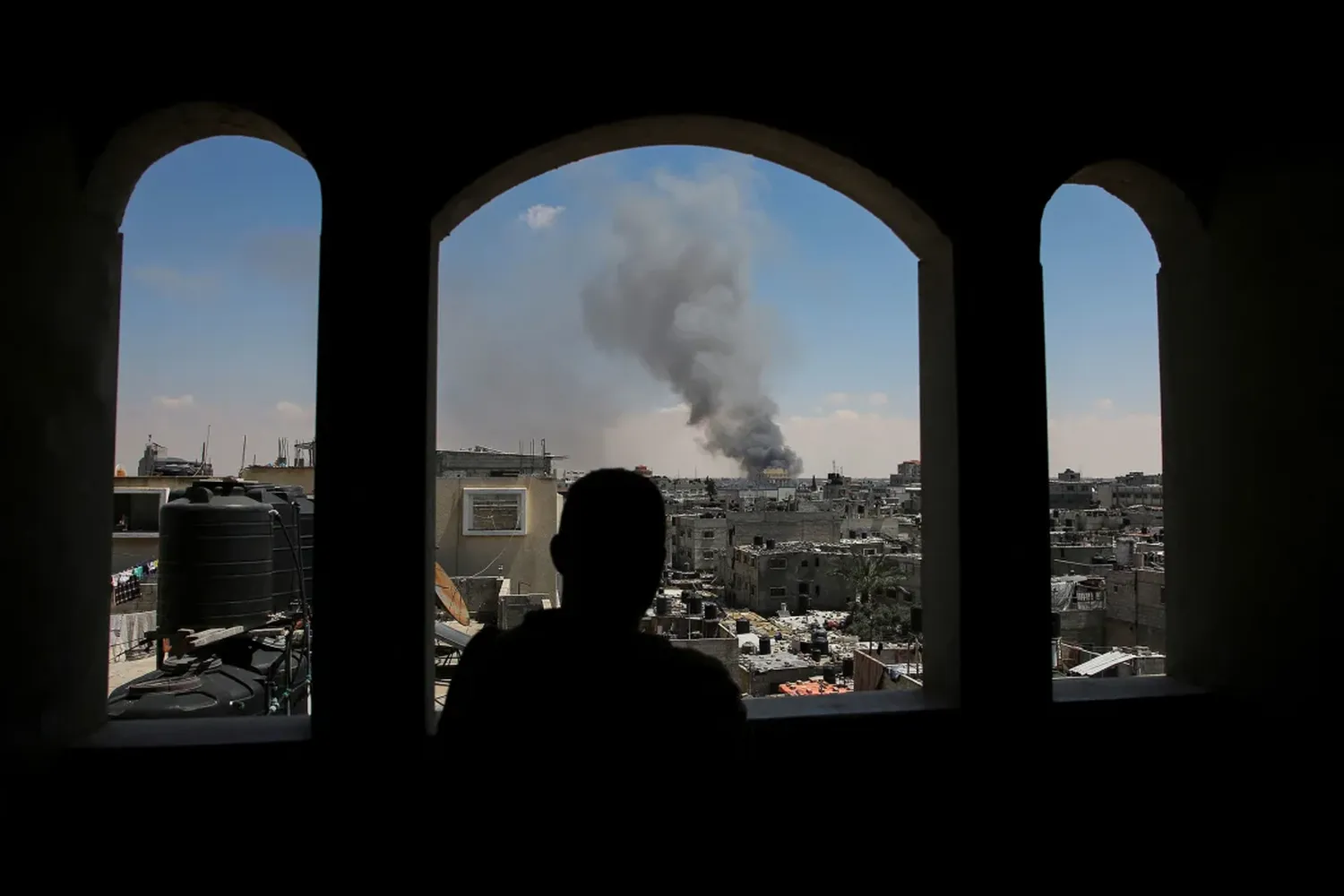Israel-Gaza War
Biden Threatens to Halt Weapon Shipments to Israel Amid Potential Rafah Invasion
In a significant shift in U.S. foreign policy, President Joe Biden announced on Wednesday that the United States will cease the shipment of bombs and artillery shells to Israel if it proceeds with a major military invasion of Rafah, a densely populated city in southern Gaza. This statement, made during an exclusive interview with CNN's Erin Burnett, marks the first time the administration has explicitly linked the continuation of military aid to Israel's tactical decisions in the ongoing conflict with Hamas.
The decision comes amid escalating tensions in Gaza, where Israeli military actions have reportedly led to significant civilian casualties. President Biden expressed deep concern about the humanitarian crisis unfolding in the region, emphasizing that the potential invasion of Rafah could exacerbate the situation. "Civilians have been killed in Gaza as a consequence of those bombs and other ways in which they go after population centers," Biden told CNN, referring to the 2,000-pound bombs that the U.S. had already paused shipments of last week.
Rafah, home to over a million Palestinian civilians, has become a flashpoint in the conflict. The city is seen as a critical juncture, not just strategically, but also as a humanitarian lifeline, being a major entry point for aid into Gaza. The Biden administration's move to potentially halt further military support is seen as a response to international and domestic pressure, with many criticizing the U.S. for its role in the civilian casualties through its military support to Israel.
The president clarified that while the U.S. would continue to support Israel's right to defend itself, particularly through defensive systems like the Iron Dome, it would not support actions that target populated areas aggressively. "We’re not walking away from Israel’s security. We’re walking away from Israel’s ability to wage war in those areas," Biden stated, indicating a nuanced approach to handling the delicate balance of supporting an ally while responding to humanitarian concerns.
This stance by the Biden administration represents a potential turning point in U.S.-Israel relations, which have traditionally seen unwavering U.S. support for Israel in international conflicts. The announcement has already stirred a variety of responses, with some viewing it as a necessary step towards ensuring that U.S. military aid is not used in operations leading to high civilian casualties, while others perceive it as an abandonment of a key ally.
The implications of this policy shift are significant, not only for U.S.-Israel relations but also for the broader geopolitical dynamics in the Middle East. It puts Israel in a position where it may need to reassess its military strategies, particularly in how it engages in densely populated areas like Rafah. Moreover, this move by the U.S. could influence other nations' policies towards Israel and potentially lead to more international pressure on Israel to avoid civilian areas in its military operations.
As the situation develops, the international community continues to watch closely. The decision to link military aid directly to tactical choices marks a significant moment in international diplomacy, highlighting the growing concerns over the humanitarian impact of military aid and the responsibilities of donor countries. The coming days will likely see further clarifications from the U.S. administration as it navigates the complex landscape of Middle Eastern politics, balancing strategic interests with international humanitarian standards.

